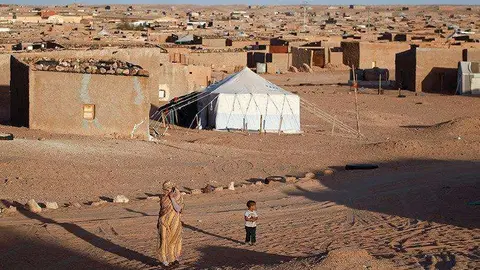Algeria backs down on protecting the rights of its refugees

Morocco hosted the "Third Global Consultation on the Health of Refugees and Migrants", an event organised by the Moroccan Ministry of Health in cooperation with the World Health Organisation (WHO), the United Nations High Commissioner for Refugees (UNHCR) and the International Organisation for Migration (IOM). Conference participants praised Morocco's role as a "promoter and protector of the rights of refugees and migrants by adopting a Policy Framework for States and its willingness to improve the health of refugees in partnership with different governments, international and regional organisations, the private sector...".
The aim of this Global Consultation was to gain political support to advance global commitments and policy development to improve the health and well-being of refugees and migrants hosted in countries, and to identify, discuss and establish safe environments and implement actions at local, national and regional levels.
During this high-level meeting, attended by 48 UN Member States, observers, refugee and humanitarian organisations and UN agencies, the "Rabat Declaration on the Health of Refugees and Migrants" was adopted. The aim of the Declaration is the inclusion of migrants and refugees in national health systems to prevent the causes that negatively influence their health and to include health and social protection considerations in national policies that relate to refugees and migrants on the basis of their fundamental right "to enjoy the highest attainable standard of physical and mental health".
Consultations organised by the conference established as a result that "countries hosting refugees should ensure their protection by allowing UNHCR to count and register them". This was initially accepted by Algeria, but it then became the only state to make a reservation on the census of refugees hosted on its territory as an overriding principle of the protection of their rights, which is a violation of a "jus cogens" norm of international law, i.e. a norm accepted by the entire international community that does not admit of agreement to the contrary and can therefore only be modified by an international norm of the same nature.

Algeria's violations of its international commitments are nothing new if one takes into account the constant calls by the United Nations urging it to "prioritise its efforts to improve the promotion and protection of human rights in Western Sahara and in the refugee camps in Tindouf..." as stated in Security Council Resolution 2654 of 2022. Since 2011, the UN has been calling on Algiers to take a census of the inhabitants of the Tindouf refugee camps, suspecting that the numbers and indicators are manipulated after the Algerians refused to identify and register them. The World Food Programme has also expressed concern and suspicions about the sale and transfer of humanitarian aid out of the camps and into neighbouring countries.
UNHCR reports that around 170,000 Sahrawi refugees live in the Tindouf camps, where many have been living for over 40 years in the middle of the desert in difficult climatic conditions that make agricultural production difficult, forcing them to depend on humanitarian aid to survive. For its part, Algeria keeps its refugees in the camps, preventing them from moving freely as the UNHCR refugee card allows them to do.
Morocco's Permanent Representative to the UN considers that this fraud on the part of Algeria is caused by the lack of identification and, above all, registration of migrants and refugees in the camps, which is due to the fact that the Algerian government has previously given erroneous figures by exaggerating the number of people hosted in the camps, according to Moroccan experts.










